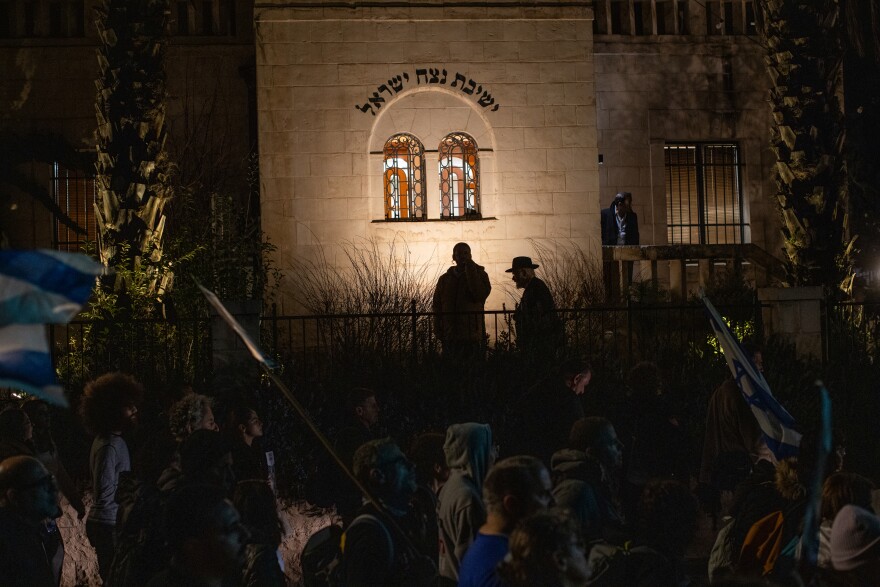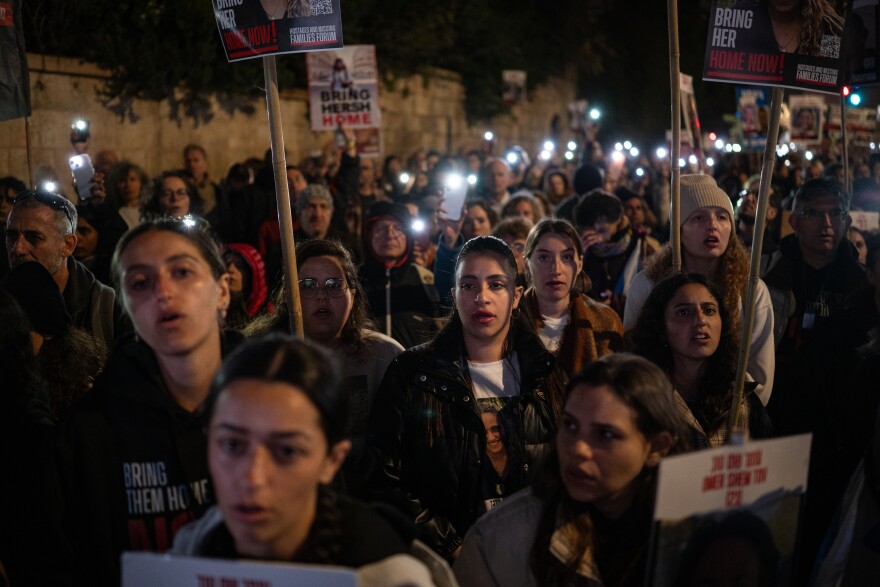ROAD 232, Israel — On Oct. 7, Romi Gonen was fleeing the Hamas-led attack on a music festival via this dusty road when she was captured by militants and dragged back to Gaza. One-hundred and forty-five days later, on Feb. 28, her mother and dozens of Israelis, whose loved ones were also taken hostage, stopped at that very spot as they made their way to Jerusalem.
The families and their supporters were a few hours into a four-day march demanding the Israeli government reach a deal with the Palestinian militant group Hamas that would free the hostages. But this first leg of the journey — through the areas that were attacked on Oct. 7 — was personal.

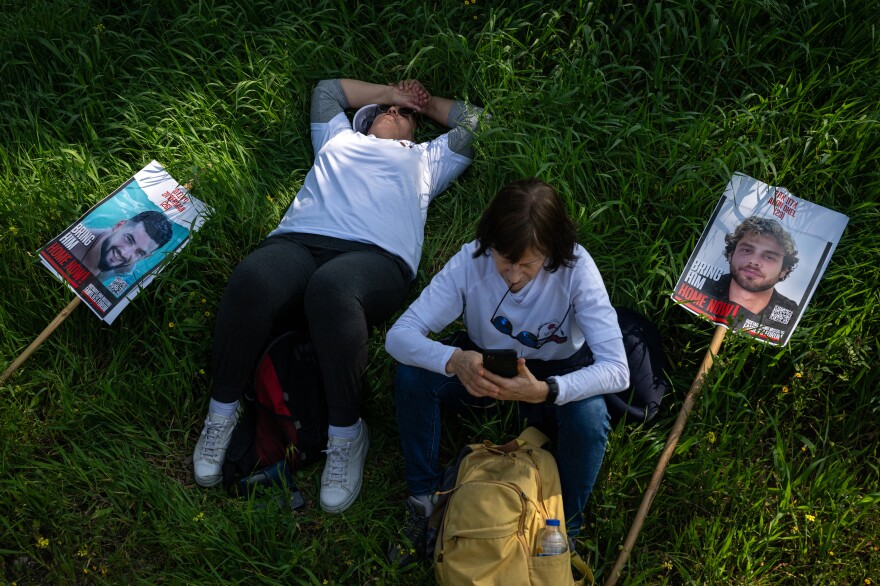

Meirav Leshem Gonen, 54, Romi's mother, told the crowd about her daughter — a 23-year-old dancer and a medic who always speaks her mind. Gonen struggled to maintain her composure while recalling their last phone call in which she could hear Romi fearing for her life against a terrifying backdrop of gunfire. Standing before some of the only people who understand how she feels, Gonen opened up.
"It's OK to cry, it's OK to be emotional," she said to the families, equipped with comfortable shoes, sun hats and a shared sense of both urgency and purpose. "But we are strong and we are here together and are united behind the understanding that our nation must bring our hostages back."
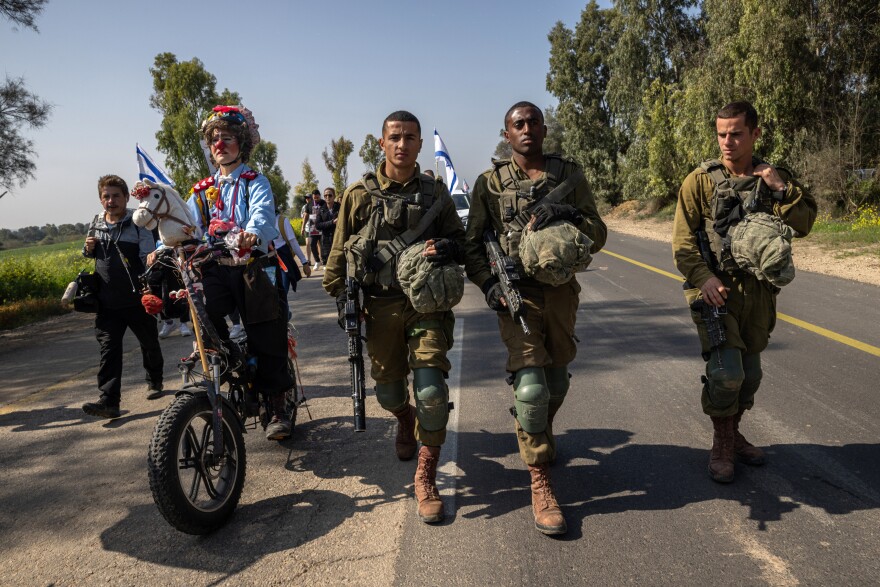
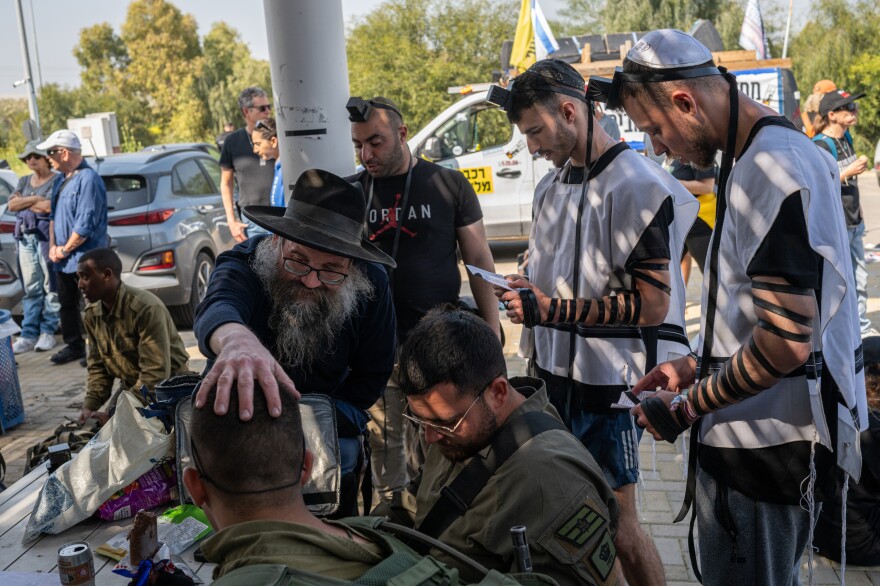
The families have spent the better part of the last five months fighting for the hostages by asserting pressure on the Israeli government and foreign leaders through round-the-clock advocacy across Israel and around the world. The approximately 30-mile march, bridged by short bus rides to keep it at four days, was their latest push to keep attention focused on the plight of the hostages, unite a fractured Israel over a common cause and to further pressure Prime Minister Benjamin Netanyahu's administration to secure a deal that would release them.
"We've gotten now to 150 days," said Darya Gonen, 18, Romi's younger sister. "Our leaders are starting to deal with other things, and if we don't keep it on the agenda every day in some way or another, it will just be forgotten."
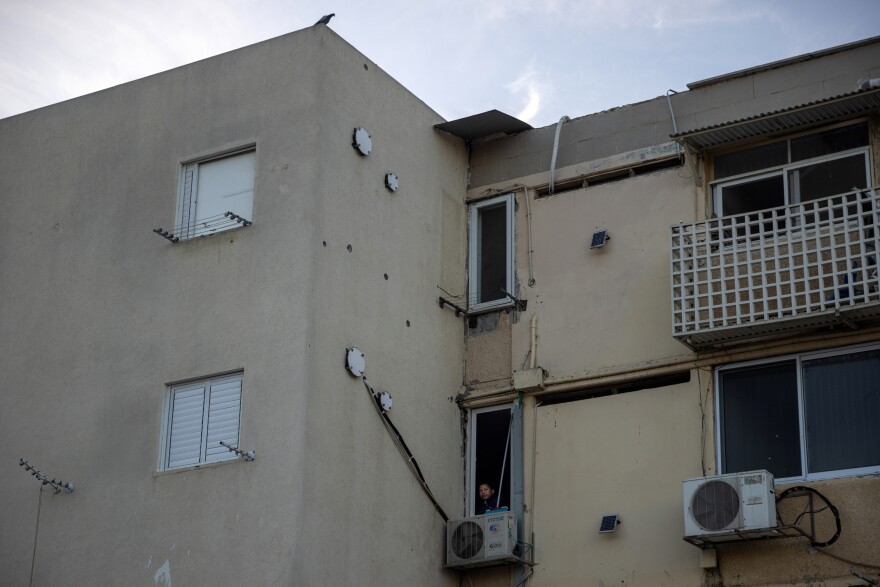
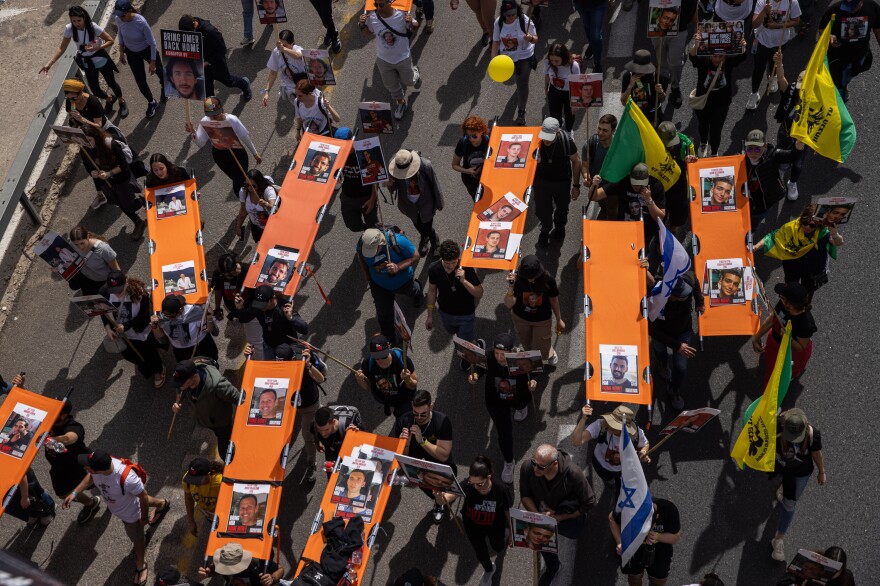

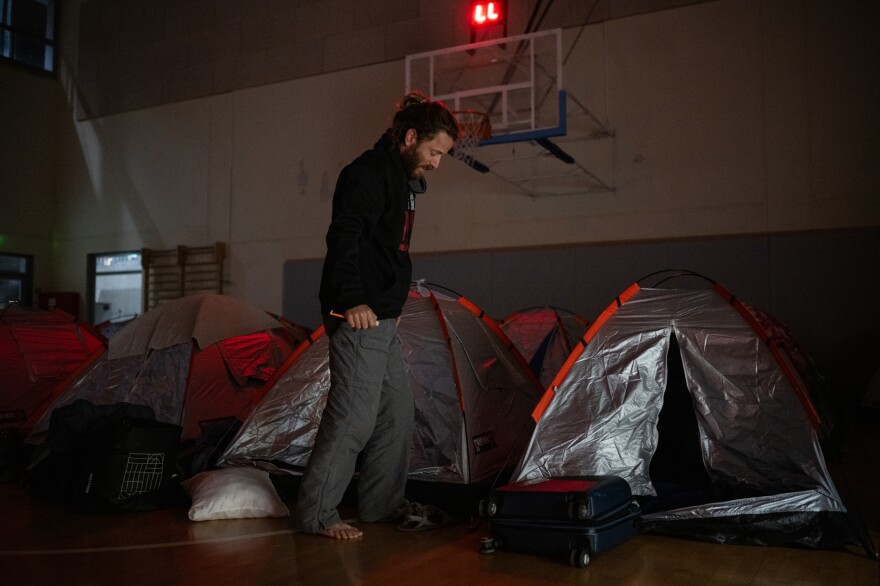
On Oct. 7, 1,200 people were killed and 240 were taken hostage when thousands of Hamas-led militants burst through the Gaza border fence and stormed nearby Israeli communities. Israel responded with widespread airstrikes and a ground operation to eliminate Hamas, which has since killed more than 30,000 people, according to Gaza's health officials.
Since then, 112 of the hostages have been freed, 105 of whom were released during a weeklong cease-fire in late November. As part of the truce, Israel released 240 Palestinian prisoners and detainees. Israel believes Hamas still holds 134 people captive in Gaza — around 100 of them still alive.
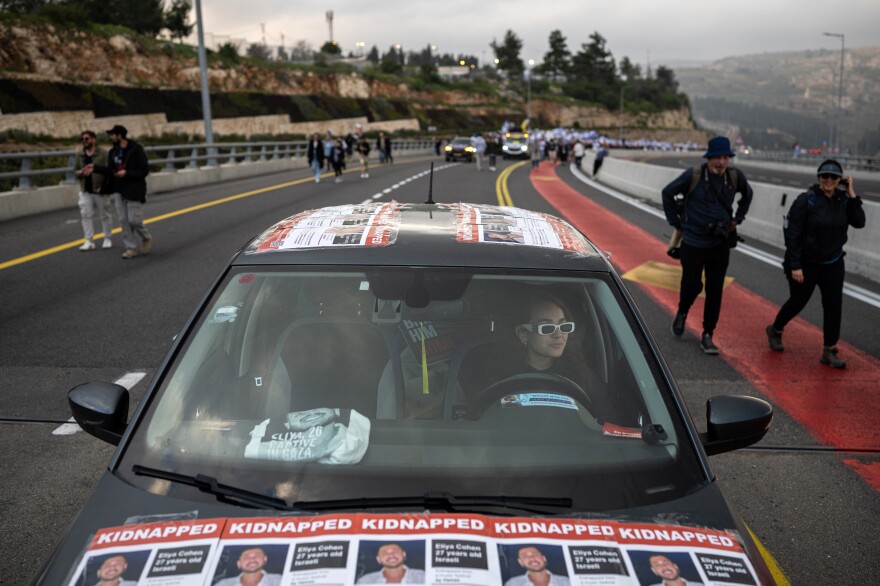
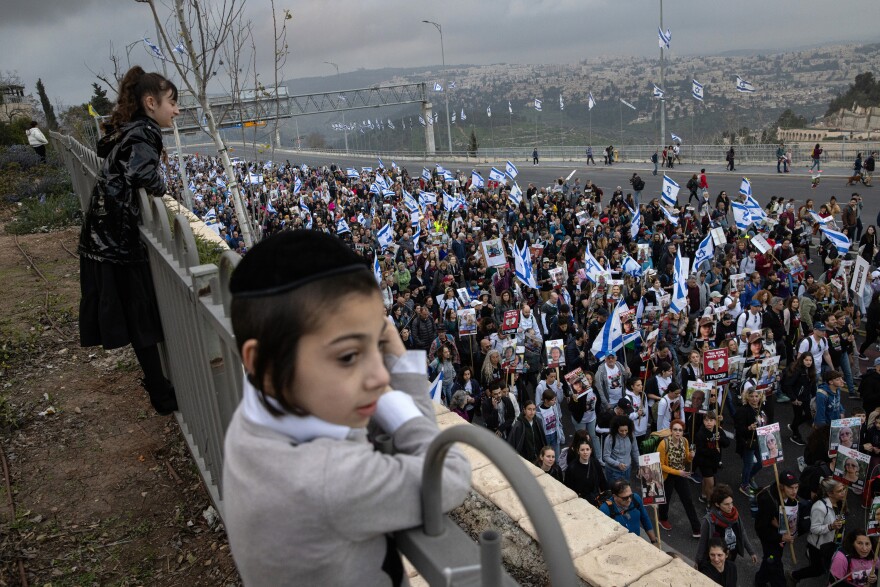
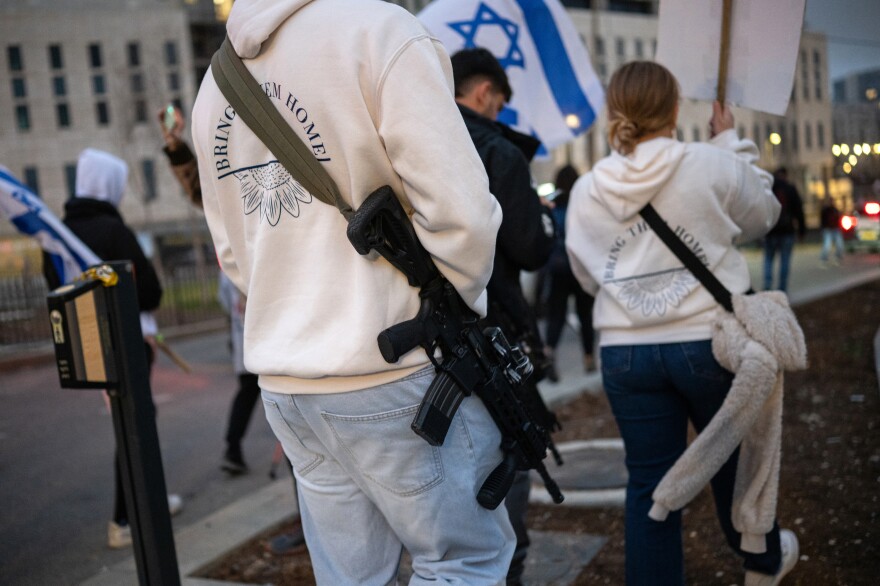
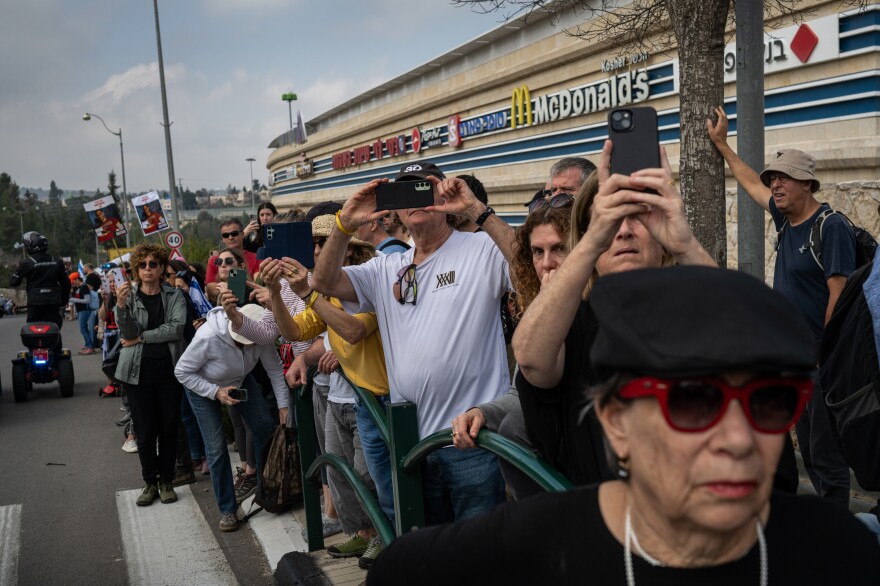
Now Israel is faced with the impossible choice of negotiating with the very group that attacked it, and that it has sworn to destroy. Netanyahu has said that the military offensive in Gaza is the best way to release the hostages, but many of their families say the government should be willing to pay whatever price is necessary to bring them back alive, even if it means ending the war.
"We're in the year 2024 and we have to find another way to solve disagreements," said Itai Siegel, 34, whose aunt Aviva was released from captivity in November and whose uncle, Keith, remains in Gaza. "Shooting is way too easy."
Amid fraught indirect negotiations between Israel and Hamas over conditions for a new cease-fire, the families of the hostages gathered in a shady grove of eucalyptus trees in Re'im, where hundreds of partygoers were killed and kidnapped, including Romi Gonen, and started their journey. Last November, relatives and supporters of hostages held a similar march from Tel Aviv to Jerusalem. Days later, the Israeli government and Hamas leaders struck a temporary cease-fire deal. The marchers hoped this second march would bring a similar outcome.
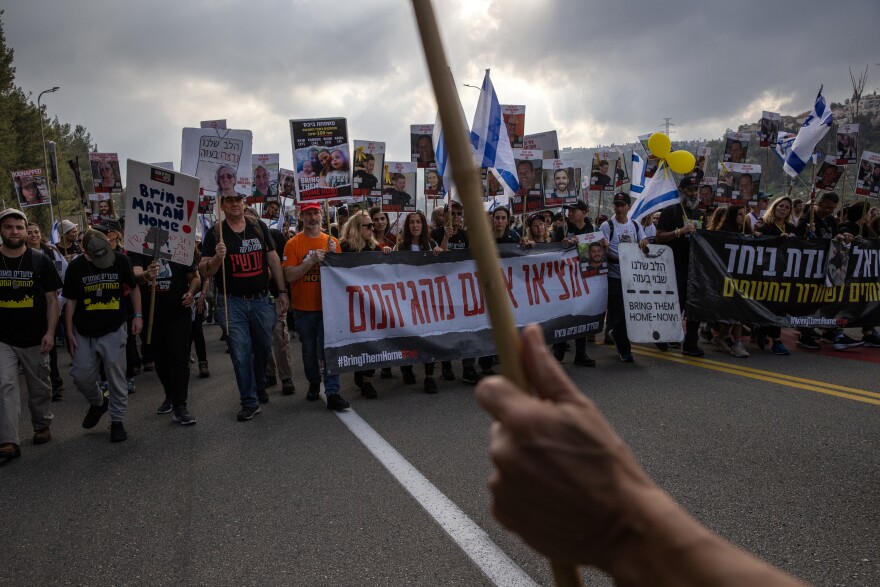
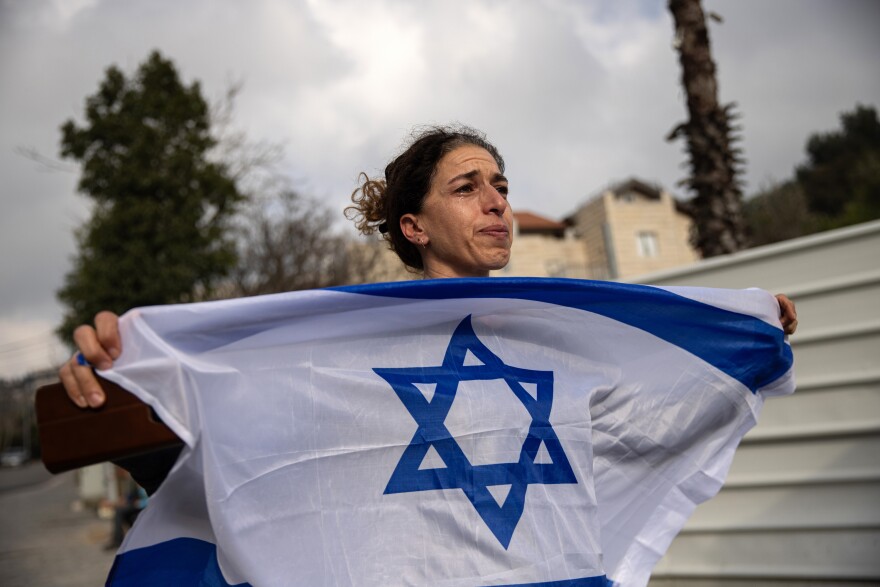
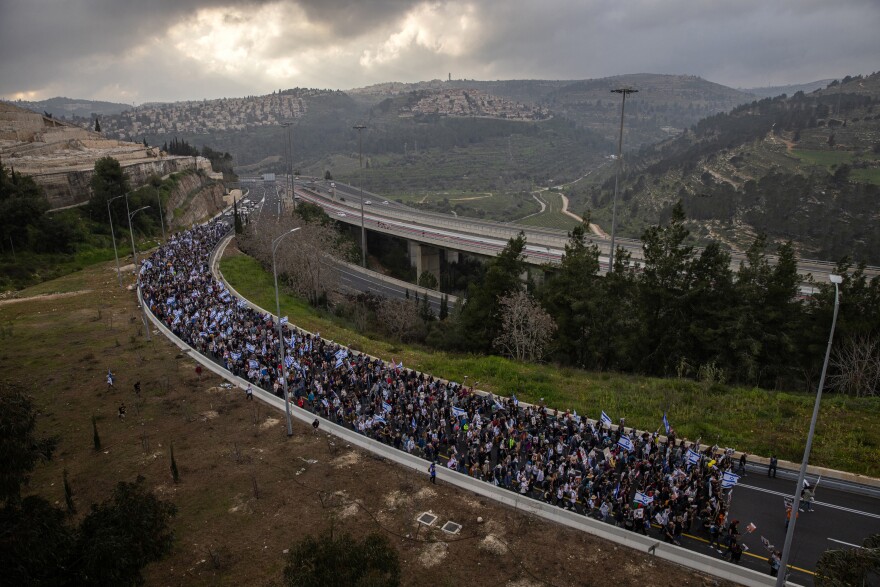
"A deal is possible," said Ronen Neutra at the start of the march. Neutra's son Omer is an Israeli soldier and an American citizen who was taken captive while responding to the attacks. "The State of Israel cannot be fully restored without securing the release of all the hostages — the living and the murdered."
By the time the march approached the ascent to Jerusalem on its final day, the numbers had grown from around 100 at its start to 15,000 people at its peak, according to the organizers. "All of them, now!" the crowd chanted in Hebrew as it approached the city.
Romi's sister Darya was among them, wearing a black T-shirt with her sister's photo on it and flanked by her family and friends. All she cares about is seeing her sister again.
"My life from before doesn't matter anymore," Darya said. "We are all focused on the same goal — that she and all the other hostages come home; until then, we won't be able to rest."
Copyright 2024 NPR. To see more, visit https://www.npr.org.
